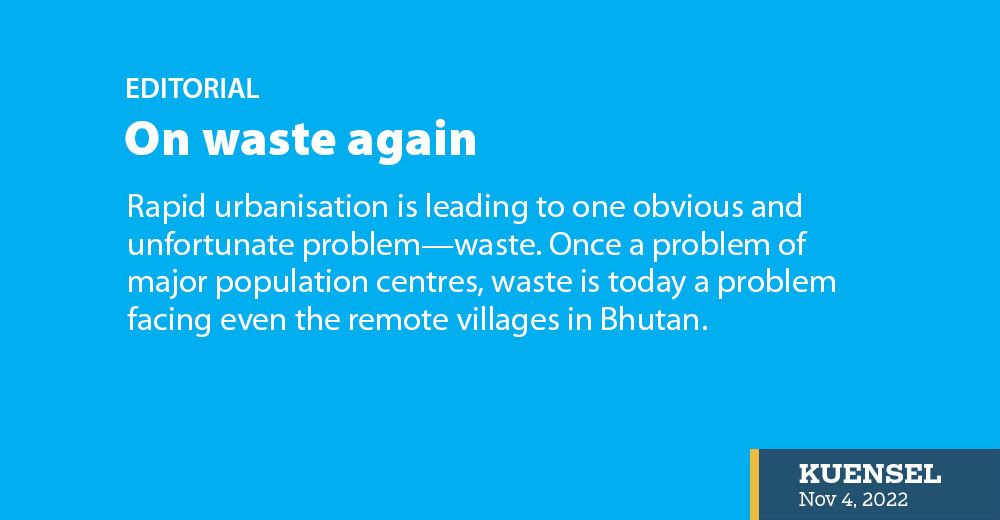Rapid urbanisation is leading to one obvious and unfortunate problem—waste. Once a problem of major population centres, waste is today a problem facing even the remote villages in Bhutan.
Mongar recently spent Nu 800,000 to compact the waste at the landfill site to create space.
Plastic waste and PET bottles can be seen everywhere today, even along the trails of the Snowman Race. Knowing that such non-biodegradable waste can have a serious impact on soil and clime, it’s a thing of wonder how reckless dumping of waste is let to happen.
It’s a good thing that volunteers show up to clean the trails, streams and rivers every once in a while, but that is not a sustainable solution. The impact is too small.
The thromde, dzongkhag, drungkhag, and the licensing authorities must provide the space, infrastructure, and implement strict waste-related rules and laws. A major chunk of the budget must go to building waste management infrastructure and implementing rules.
If sensitisation and advocacy programmes do not work the way we do, it should come raw and hard. That means people should pay heavily for littering. That is not happening.
The thing is that we cannot let the waste problem get out of hand. Why is waste collection a problem in Bhutan?
Recently, we trained the waste managers in the thromdes on maintenance, waste collection and landfill management techniques. Only very recently, the government and people of Japan gave Bhutan 28 compactor trucks, three dumper placers, two backhoe loaders, an excavator and a bulldozer, and 24 containers worth Nu 330 million to four thromdes to improve waste collection in the country.
As a country known widely for environmental conservation, not being able to manage our waste is an anathema that should pain us to the deepest core.
Waste is our own problem. We need to solve it. It’s about discipline. And, we all know that discipline is a culture that must be inculcated.
It is upon the thromdes, through the flagship programme, to work out an efficient system of management of waste. The thrompons of the big town must lead with examples. Mayoralty is not about the position; it is about responsibility.
As they say, a good city is a good city because it is a clean city. At a time when Bhutan is opening in a new way, cities will have to define what truly Bhutan is. What we need to remind ourselves is that the impact of unmanaged waste on the country’s fragile ecology will be costly.


